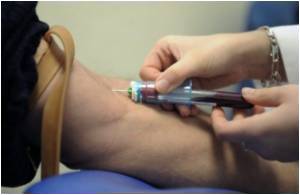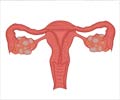
In the study, researchers also found that BPA, a known hormone disrupter, is elevated and associated with higher levels of male hormones in the blood of women with PCOS compared with healthy women.
These findings held true for both lean and obese women with PCOS, said Evanthia Diamanti-Kandarakis, study co-author and professor at the University of Athens Medical School in Greece.
"Women with the polycystic ovary syndrome should be alert regarding this environmental contaminant's potential adverse effects on reproductive aspects of their health problem," she said.
Excessive secretion of androgens-masculinization-promoting hormones-occurs in PCOS. The syndrome raises the risk of infertility, obesity, Type 2 diabetes and heart disease.
Past studies show that BPA is elevated in women who have had recurrent miscarriages. This chemical can leach into the bloodstream from food and beverage containers that are made of polycarbonate hard plastic or lined with epoxy resins, or from some dental sealants and composites.
Advertisement
Blood levels of BPA, compared with those of controls, were nearly 60 percent higher in lean women with PCOS and more than 30 percent higher in obese women with the syndrome.
Advertisement
Although BPA is a weak estrogen, excessive secretion of androgens, as seen in PCOS, interfere with BPA detoxification by the liver, leading to accumulation of blood levels of BPA, Diamanti-Kandarakis explained.
"BPA also affects androgen metabolism, creating a vicious circle between androgens and BPA," she said.
Diamanti-Kandarakis said women with PCOS may want to limit their exposure to BPA.
"However, no one has proved that by reducing BPA levels in PCOS, it will have beneficial effects," she said.
The results were presented Sunday at The Endocrine Society's 92nd
Annual Meeting in San Diego.
Source-ANI















